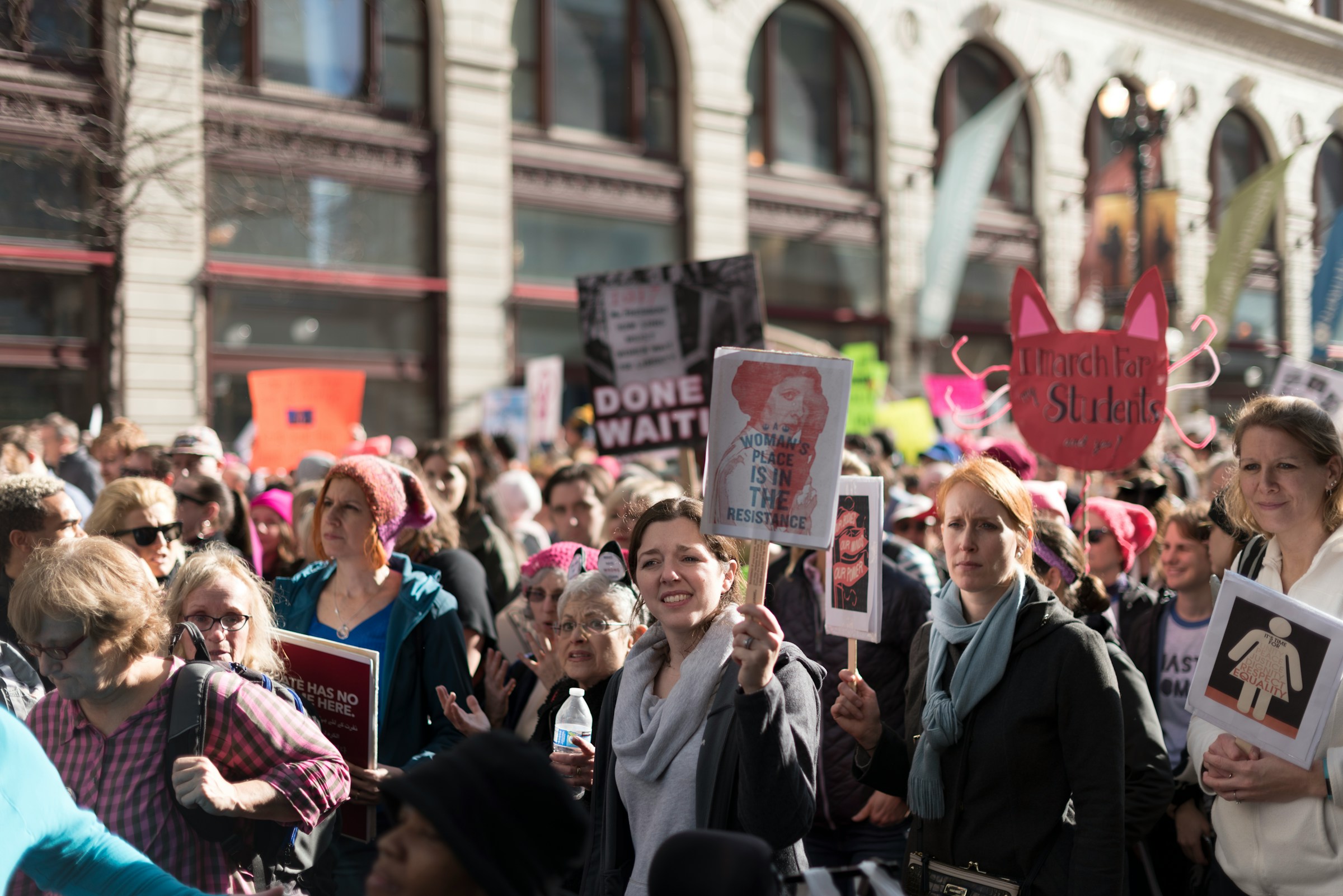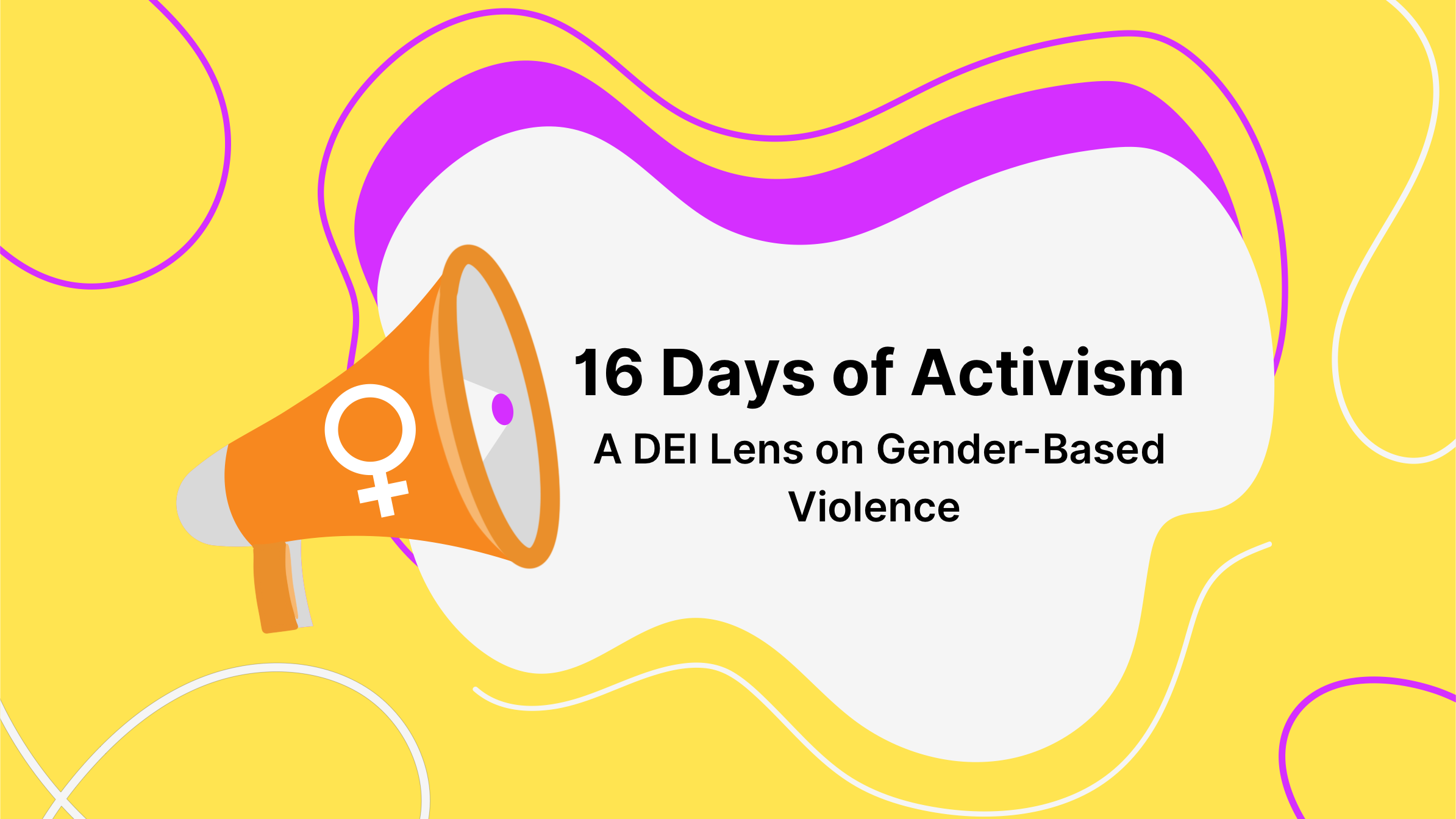The 16 Days of Activism Against Gender-Based Violence is a powerful annual campaign that shines a light on the pervasive issue of gender-based violence (GBV). Running from November 25 (International Day for the Elimination of Violence Against Women) to December 10 (Human Rights Day), these 16 days call on individuals, organizations, and governments to take action to address the systemic inequalities that perpetuate violence. At Shiftbalance, we recognize the deep interconnection between GBV and the principles of DEI.
Why Focus on Gender-Based Violence?
Gender-based violence is not just a personal issue; it’s a societal one that impacts every aspect of life, including workplaces, communities, and economies. According to the World Health Organization, 1 in 3 women worldwide experience physical or sexual violence in their lifetime. This staggering statistic reflects deeply entrenched inequities and cultural norms that prioritize power over equity.
For DEI practitioners, the fight against GBV is part of the broader mission to create inclusive environments where everyone can thrive. By challenging harmful stereotypes, addressing systemic discrimination, and promoting equity, workplaces can play a significant role in reducing GBV.
The Role of DEI in Addressing GBV

Photo by Josh Howard on Unsplash
Policies That Promote Equity and Safety
Workplaces often mirror societal inequalities, making it critical to ensure that internal policies prioritize safety and equity. Organizations can implement:
- Zero-tolerance policies for harassment and abuse: Clear reporting mechanisms and swift action against offenders create a safer work environment.
- Inclusive leave policies: Offering support, such as paid leave for survivors of violence, demonstrates a commitment to employee well-being.
- Equity in hiring and promotion: Addressing gender disparities in leadership positions helps dismantle power imbalances.
Challenging Gender Bias and Stereotypes
Unconscious biases fuel inequities that perpetuate GBV. For example, assumptions about women’s « appropriate roles » or dismissing the experiences of marginalized genders create environments where harmful behaviors are tolerated. DEI training programs that address these biases are vital for fostering a culture of respect.
Creating Psychological Safety
Employees must feel safe to speak up about issues, including GBV, without fear of retaliation or stigma. Organizations should focus on building psychological safety by:
- Encouraging open dialogue on difficult topics, such as harassment and discrimination.
- Establishing confidential channels for reporting abuse or misconduct.
- Actively supporting survivors with resources and accommodations.
DEI in Action: Strategies for Organizations
Education and Awareness Campaigns
The 16 Days of Activism is an opportunity to educate employees about GBV and its impact. Host workshops, invite guest speakers, or share educational materials that explore the connections between GBV and workplace culture.
Review and Revise Policies
Use this period to conduct a thorough review of workplace policies. Are your anti-harassment guidelines comprehensive? Do you have clear procedures for handling reports of violence or misconduct? Inclusive policies signal to employees that their safety and dignity matter.
Promote Allyship and Advocacy
Encourage employees to be active allies in the fight against GBV. Allyship involves recognizing privilege, challenging harmful behaviors, and supporting marginalized groups. Offer training that empowers employees to intervene safely in situations of harassment or abuse.
Support Community Initiatives
Partner with local organizations working to combat GBV. By donating resources, hosting fundraising events, or volunteering, your organization can contribute to broader efforts to eliminate violence.
The Broader Impacts of Addressing GBV
Addressing GBV is not just a moral imperative; it’s also good for the workplace. Organizations that prioritize equity and inclusion see improved employee engagement, reduced turnover, and enhanced reputation. Employees are more likely to stay with organizations that align with their values, and customers are increasingly choosing to support socially responsible companies.
Moreover, tackling GBV contributes to a healthier, more productive workforce. Violence and harassment can lead to absenteeism, decreased productivity, and mental health challenges, all of which impact organizational performance.
Measuring Progress
As with any DEI initiative, it’s essential to measure progress when addressing GBV. Set clear goals and track metrics such as:
- The number of employees participating in GBV awareness training.
- Employee satisfaction and safety survey results.
- The effectiveness of reporting mechanisms and the resolution of complaints.
Beyond the Workplace
The responsibility to address GBV extends beyond the workplace. Organizations can influence broader societal change by advocating for equitable policies and supporting community programs. For example:
- Advocate for legislation that protects survivors and promotes gender equity.
- Support initiatives aimed at educating young people about healthy relationships and consent.
Conclusion: A Call to Action
The 16 Days of Activism Against Gender-Based Violence is more than a campaign—it’s a call to action for individuals, organizations, and communities to work together to end violence and build a more equitable world. At Shiftbalance, we believe that DEI is at the heart of this effort. By challenging biases, implementing inclusive policies, and fostering a culture of respect, workplaces can become powerful agents of change.
One of the key projects Shiftbalance is working on is our Positive Masculinities initiative at a UN organization,, designed to support male employees in exploring what healthy masculinity can look like within the workplace. This is a unique opportunity for participants to engage in open, meaningful discussions about the complexities of modern masculinity, examining societal expectations and finding new ways to define success—personally and professionally.
Through reflective discussions, interactive activities, and personal storytelling, we’re fostering a space where men can:
- Confront societal pressures and the limitations they bring
- Embrace and promote gender equality as a pathway to healthier workplace dynamics
- Build a support system for navigating the unique challenges faced by men today
This year, let’s commit to actionable steps that promote safety and equity for all. Together, we can shift the balance and create a future free from violence.
Resources:
’16 Days of Activism against Gender-Based Violence’, UN Women








